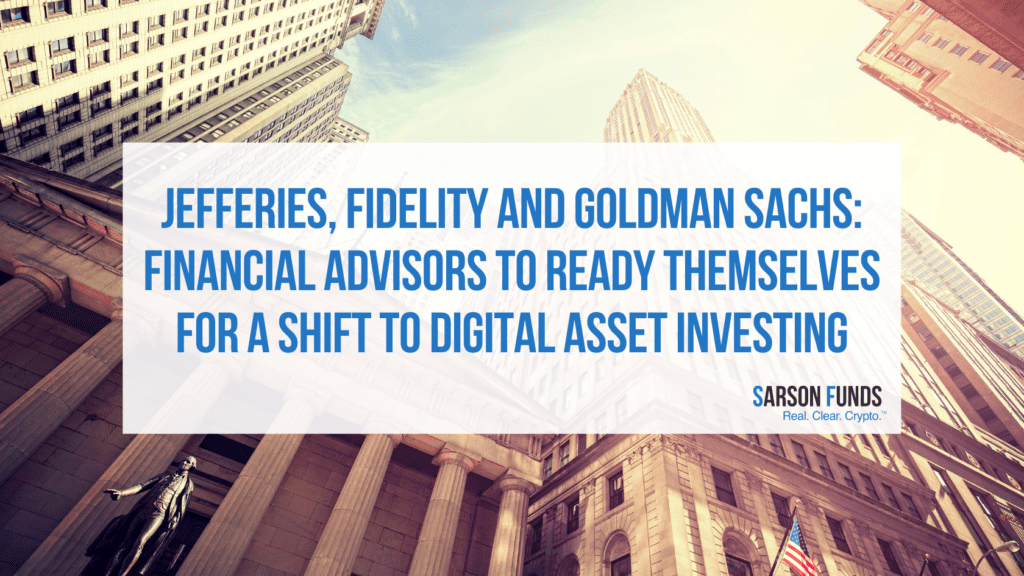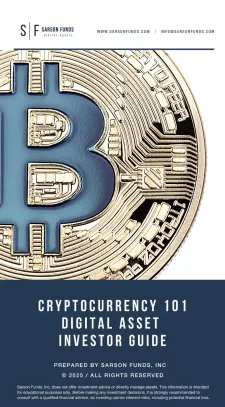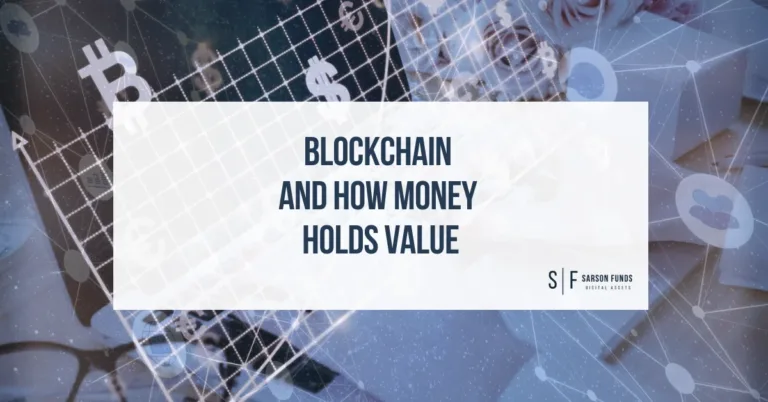
This week has welcomed yet another suite of exciting news for the crypto industry as a number of Wall Street firms made major headway with onboarding digital assets into their service suite. The investment bank Jeffries announced that it is expanding banking services for crypto clients, Fidelity opened up Bitcoin inclusion in its 401(k) accounts, and Goldman Sachs is ramping up crypto trading, never mind mentioning digital assets on the front page of their website. As finance institutions ready themselves for a shift in demand to digital asset investments, we believe financial advisors must ready themselves to advise on the incoming wave of demand from their clients, boomers to millennials alike.
Among the wave of demand experienced by Wall Street institutions for crypto products, Financial Advisors also find themselves approaching one of the greatest wealth transfers of all time. Coined “The Great Wealth Transfer,” millennials are gearing up to inherit $68 trillion from boomers over the next three decades, implying not only a shift in wealth, but also a shift in investing goals and strategies. This wealth transfer will likely spur the universal adoption of digital assets as millennials drive the exponentially increasing capital inflow towards Bitcoin and other cryptocurrencies.
The impending wealth shift towards decentralized finance and digital assets offers an equally lucrative opportunity for financial advisors to align themselves with the future of their clients’ interests. According to Grayscale’s October 2020 Bitcoin Investor Study, Bitcoin’s largest investor group is between the ages of 25 and 34, while more than half of millennials surveyed indicated that they would invest in digital assets if their financial advisors recommended they do so. Thus, advisors must ready themselves for the upcoming shift in wealth and investor interests by building the resources and knowledge base about the crypto ecosystem to support the future needs of their clients. If advisors fail to act, they will miss out on the next frontier of investing.
Additionally, the shift towards personalized digital investing via platforms such as Robinhood and Coinbase gives everyday folks the opportunity to invest without the need for a financial advisor. As Coindesk reports, 80% of Robinhood’s investors are millennials, indicating that the once niche practice of investing is less viewed as something only professionals and wealthy individuals can engage in. Rather, personal investing platforms are normalizing investing for smaller-scale investors as they are steered towards cheaper fees and more transparent portfolios.
While most traditional investors remain invested in the stock and fixed income markets, the upcoming wealth transfer and alternative interests of millennials will likely make way for a significant reallocation of this capital into digital assets, according to Grayscale’s report. As such large sums of money change hands, Financial Advisors remain best suited to field this emerging demand for digital asset advisory and should prepare themselves to provide proper advisory and insights to digital asset investors when they are needed. For a crash course on everything financial advisors should know about crypto to effectively educate and advise their clients, check out the Sarson Funds Financial Advisor Education Program, here.
While digital asset investing intersects with the new era of personally managed investments, advisors should not shy away from incorporating digital asset investment opportunities into their offerings. Digital asset custodian platforms give advisors the ability to uphold their traditional fee structures when managing their clients’ investments, allowing for easy integration when advisors are ready.
Disclosures: Not investment advice. It should be assumed that Sarson Funds or its affiliated managers hold positions in all projects that are discussed. It is not possible to invest in any project directly through Sarson Funds, Inc. or its affiliated managers. Any investment product offered by managers affiliated with Sarson Funds should be assumed to be only available to Accredited Investors and subject to the individual terms and conditions of that offering including but not limited to those eligibility requirements associated with U.S. Securities Regulation D, section 506c. Talk with your financial advisor before making any investment decisions or have them contact Sarson Funds directly at [email protected]









